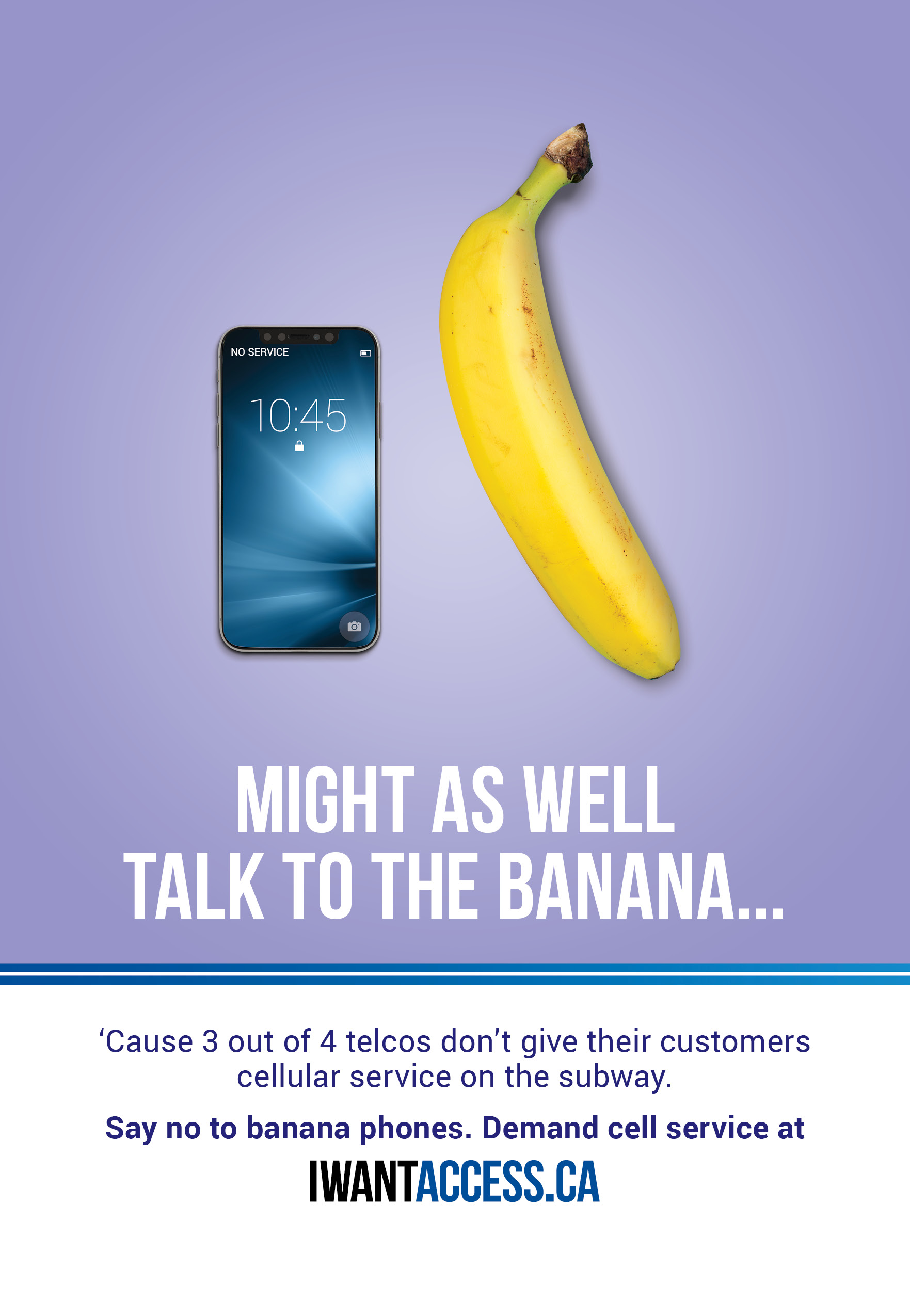Telecoms Won’t Let Your Phone Get Service on the Toronto Subway
Credit to Author: Anne Gaviola| Date: Fri, 27 Sep 2019 16:55:40 +0000
If you’re a customer of Bell, Telus, or Rogers, and you take the subway in Toronto, your cell phone is kind of useless when you’re underground. You may have service while you wait for the train, if you’re lucky. But once you’re in most tunnels, it’s a black hole communications-wise.
The reason you can’t make calls, send messages or otherwise be online is because the Big Three, which together serve more than 90 percent of the Canadian market, don’t allow their customers to access the existing system (disclosure: VICE has a partnership with Bell Media).

That’s the gist of the $200,000 campaign launched this week by BAI Communications Canada. The company won a 20-year contract, beating out Bell, granting it the exclusive ability to build the infrastructure for cell service for the country’s biggest subway system. The hardware has been ready for people to use for more than three years.
That’s a big deal for the 1.4 million daily riders who take the Toronto Transit Commission’s (TTC) subway. But so far, only customers of Freedom Mobile, which is one of the country’s small providers, can use it.
Bell Canada spokesperson Nathan Gibson told VICE via email that “Canadian wireless providers including Bell look forward to building out the wireless infrastructure required on the Toronto subway system but have been denied access to do so.”
Rogers spokesperson Bill Killorn told VICE via email: “We’re focused on delivering a reliable, consistent experience for our customers and will always look at opportunities to expand our network.”
Telus told VICE via email that it has "no concrete plans to offer cellular service in the Toronto subway."
BAI CEO Ken Ranger said his firm has already spent more than $50 million laying down the wireless system in Toronto, and there isn’t space to duplicate this. He says that approach “isn’t feasible.” When asked what BAI would charge the Big Three to plug in, Ranger didn’t provide dollar figures.
Both Gibson and Killorn suggested that Toronto should consider Montreal’s transit system model, where all carriers were invited to participate in the wireless buildout. Passengers in Montreal have had wireless service underground from several providers since 2014.
But there are no signs that will be the case in Toronto anytime soon.
Ranger says that if the Big Three can work together in Montreal, they should be able to do that with his company in Toronto. His firm has built the wireless infrastructure for much larger and more complex subway systems, namely New York and Hong Kong.
“This isn’t unique to Toronto, this is a model used all around the world. It makes sense to have a system like this that is agnostic and doesn’t favour one company over another. We’re Canadian-owned. It’s pretty straightforward and they can simply plug in,” Ranger said.
BAI’s public awareness campaign urging people to put pressure on the Big Three, is slated to run for six weeks on billboards at TTC stations and on social media.
This story has been updated with comment from Telus.
Follow Anne Gaviola on Twitter .